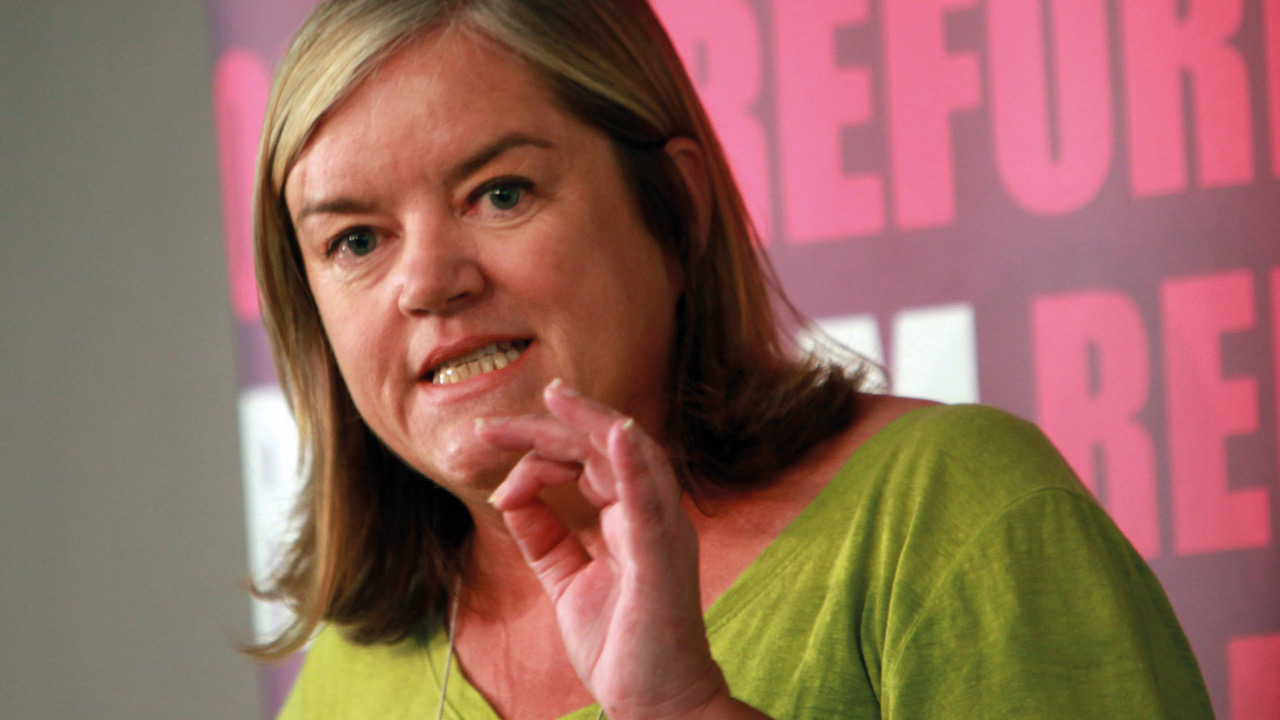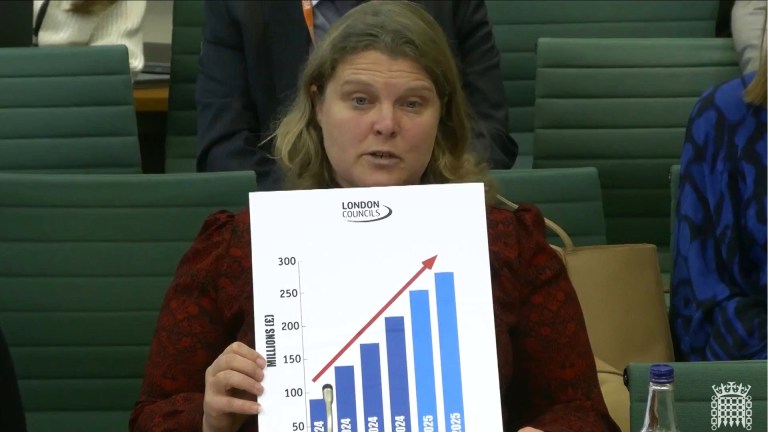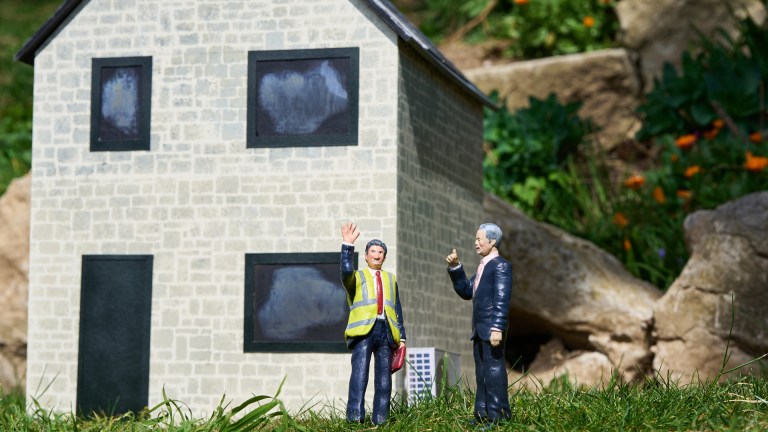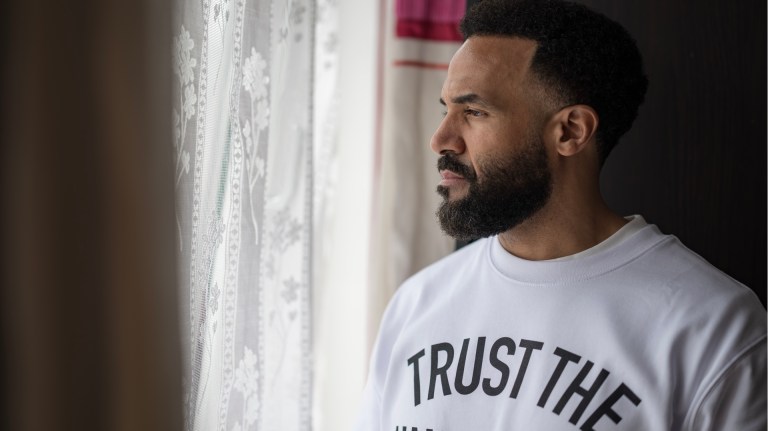Jeremy Swain: I was working on this before lockdown with colleagues in the big housing associations – your LMGs, your Clarions and your Peabodys. The extra £53m revenue funding that we were able to bring through over this four-year period is absolutely crucial. With this injection of cash from us and us making it clear to them that this is a once-in-a-lifetime opportunity to make a massive difference to very destitute people, they were prepared to get behind us. I know that in the sector that is really going to excite them.
TBI: Wraparound support with accommodation is often referred to as Housing First. Is there a reason why you have stepped away from using that phrase in your announcements?
JS: I was involved with Housing First in the 1990s and I’m a big fan, but the problem is there is a slight danger that we think that everybody in those hotels at the moment needs wraparound support and they need it for a long time. What we need to be doing, as well as getting people into housing, is to get people into work. And that is what they are wanting. That’s what they want – when I was at Thames Reach and you put out the questionnaires, 75 per cent of people wanted the services to help them get jobs. Consistently it is bottom of the list for the homelessness sector when for the people themselves it is top of the list.
TBI: Ending rough sleeping is not just about the people currently in hotels, it is also about stopping people who may fall into rough sleeping in the future with deprivation on the horizon for many. How are you working to prevent that?
DLC: I was due to do a review into rough sleeping and homelessness but we have all been turned upside down by Covid-19. The primary motivation so far was led by Covid-19 to do an extraordinary thing in unprecedented times, which was to say, “Let’s just get everyone in.” We had everybody getting on the phone to hotels, getting [charities] St Mungo’s, Thames Reach and Look Ahead in London to stand up enough staff to literally in a couple of weeks add to the estate in London by 2,000 beds.
We were chasing the virus just trying to stay ahead of it. When the inquiry eventually comes saying: “How did you do it? Why did you do it? And what choices did you make?” We just went for it, everybody went for it. We had to get everybody in, we cannot have people dying on the streets. And we cannot have people dying in communal night shelters and that is the prospect that we were facing. We need to be clear that right now we are dealing with this extraordinary situation where 15,000 people have been accommodated at this time.
Advertising helps fund Big Issue’s mission to end poverty
I’m not saying that we don’t want to work out how do we not return to the situation that we have seen in the last few years. But our primary purpose so far has been to keep people safe. That will remain our primary purpose, but at the same time we feel that we should see this as an opportunity to think that we can get something extraordinary out of this but that will take an extraordinary effort. The homelessness sector itself and the wider community also needs to think, at this horrific time in our nation’s history, what they can do to help as opposed to what they call on the government to do.
TBI: How can The Big Issue help you to end rough sleeping for good?
DLC: I think The Big Issue can play a really interesting part in what we try and do in homelessness next. I don’t just mean the vendors, I mean the whole organisation – with the hand up not the handout there has been nothing like it with that type of ethos and attitude. I think it’s a real shake-up to the sector – and it was at the time when it came into being. It could play a really major role in trying to work that out.
At the moment I’m personally really conscious that I haven’t seen any vendors. I think that’s good because I want them to be safe but it would be great to think what we can do differently about employment and about training. The Big Issue is a very respectful way of working with people and a respectful way of giving people their own voice and their own power and I love that.
TBI: What would you class as success for this taskforce?
DLC: For me, there are two things. The minimum goal has got to be that vulnerable, long-term rough sleepers who have come in, stay in and we see this as a massive opportunity to put our arms round them and figure out what will make it stay safe for them to come inside.
Advertising helps fund Big Issue’s mission to end poverty
The people who are still on the streets – some who never came in and others who came in and went back out again because the hotel wasn’t the right place for them to be – we must have in our hearts the fact that we have got to help the people who are most vulnerable. And secondly I think it would be fantastic if we could work out and change the way we think about rough sleeping in this country so that the safety net for homeless people isn’t the street. The street is just such a dangerous place for people to live.
This article originally appeared in The Big Issue magazine #1412.
You can buy one-off issues or subscriptions from The Big Issue app, available now from the App Store or Google Play.
You can keep us going by subscribing to the magazine to receive it every week directly to your door or device. Head to bigissue.com/subscribe for more details.
You can also get a copy in stores for the first time. Head to Morrisons, Waitrose, Sainsbury’s, McColl’s, Co-op, Asda or WH Smith to grab the latest issue.










